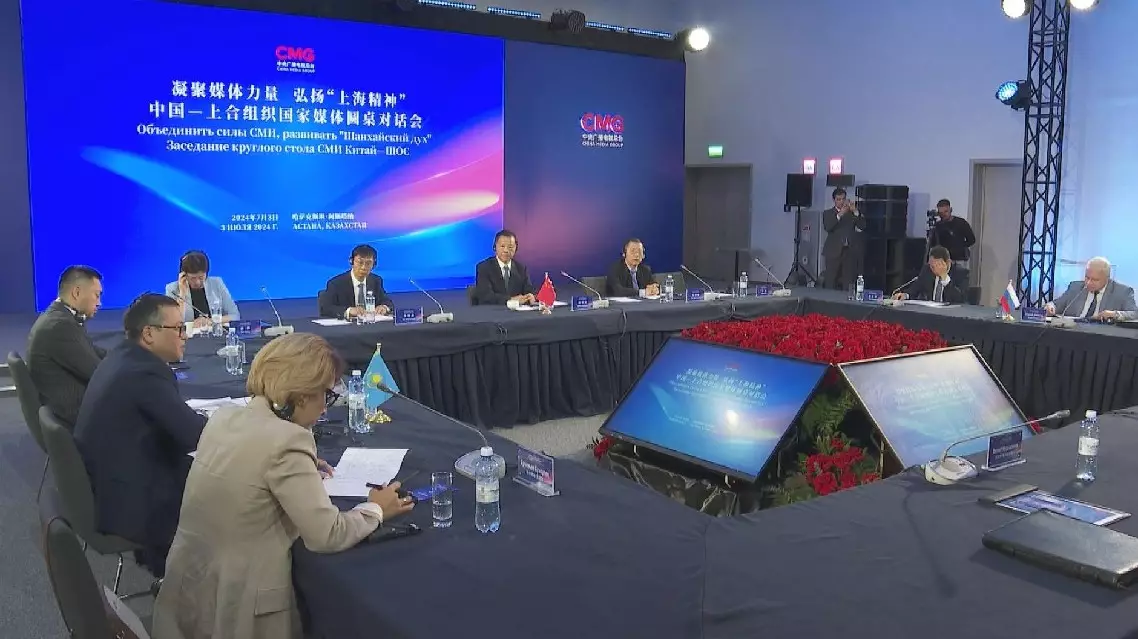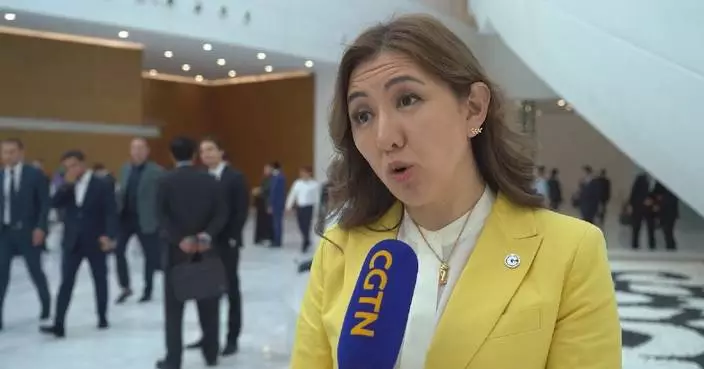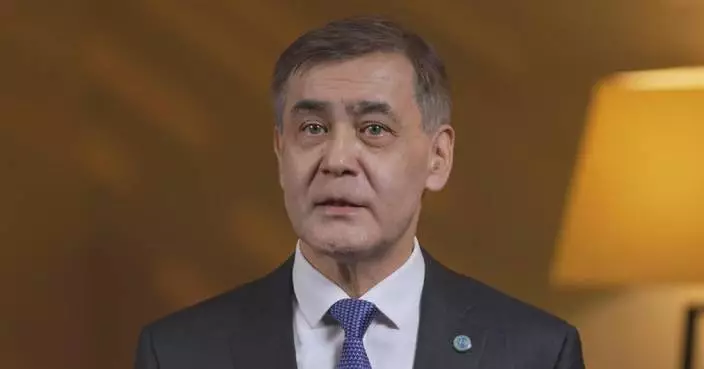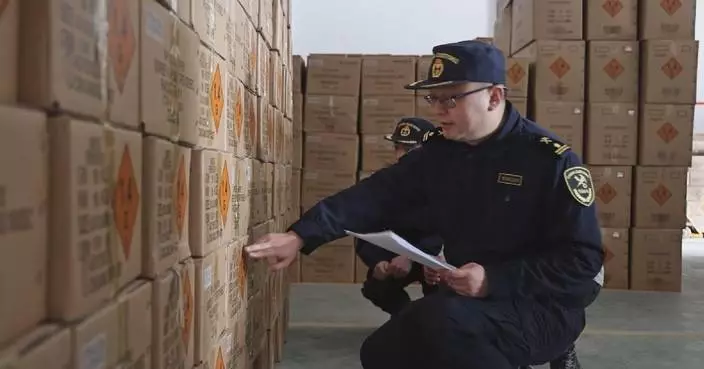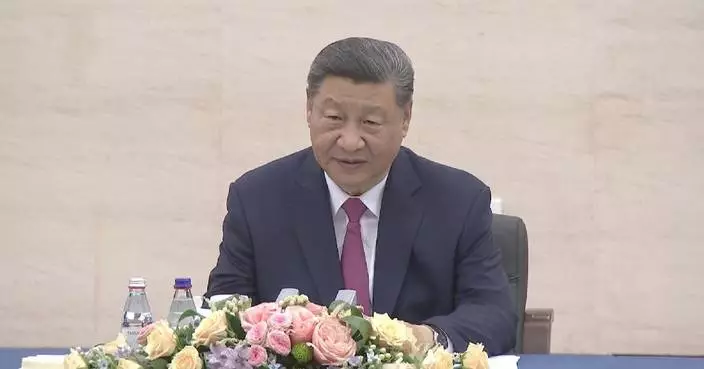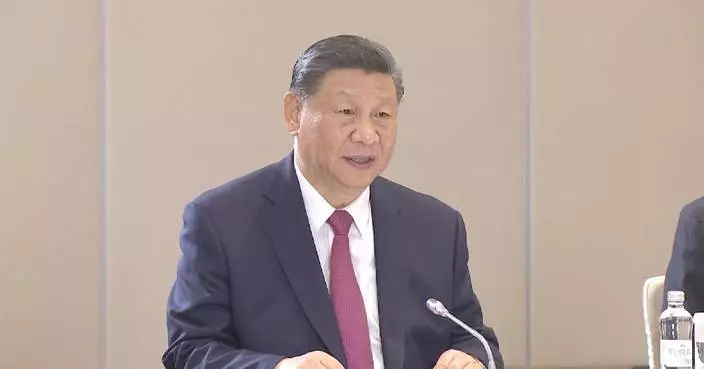Shaanxi Province in northwestern China has been collaborating with member countries of the Shanghai Cooperation Organization (SCO) in areas like fruit and wheat cultivation to bolster agricultural trade and economic development.
Featuring non-alliance, non-confrontation and non-targeting of any third party, the SCO was established in 2001 by China, Kazakhstan, Kyrgyzstan, Russia, Tajikistan and Uzbekistan. India and Pakistan were admitted as full members in June 2017 and Iran in July 2023.
In Shaanxi's Yangling, an SCO demonstration base for agricultural technology exchange and training was established in 2020. It uses big data, artificial intelligence and other cutting-edge technologies to promote modern agriculture development in arid and semi-arid areas.
Wang Yan is a manager of a demonstration base for dragon fruit plantations. She planted dragon fruit in south China's Hainan Province, and in 2008 she returned to her hometown of Yangling to develop the same industry.
As the first individual to plant dragon fruit in Yangling, Wang's first attempts failed to harvest because of the temperature and humidity difference. Without anyone to turn to for expertise, she kept exploring and experimenting and finally succeeded in 2015.
"Experts from SCO member countries like Iran, Pakistan and Uzbekistan are very interested in dragon fruit plantations. They visit our base every month, exchanging ideas about facilities use, greenhouse construction, irrigation systems, plantation skills and variety breeding. We worked with Northwest Sci-Tech University of Agriculture and Forestry to develop our irrigation system that can save 70 percent of the water compared to other systems," said Wang.
Professor Zhang Zhengmao is a senior wheat plantation expert at Northwest Sci-Tech University of Agriculture and Forestry, one of the top universities in China. He and his team have been working on hybrid wheat development in Kazakhstan since 2017.
Zhang said that generally, the higher the latitude, the lower the height of wheat. So they've been experimenting with taller Chinese wheat varieties both in Yangling and northwest China's Xinjiang that has a similar climate to Kazakhstan.
"The agronomic traits, yield traits and disease-resistance traits of local Chinese wheat are good, but the Kazakh wheat is better quality. So we are doing experiments in both countries to produce hybrid wheat that has the best traits of both types of wheat," said Zhang.
Kazakhstan has fertile land, but the unit yield was previously low. Since the cooperation of experts from both countries began, yields have increased by as much as 60 percent.
As the first national agricultural high-tech industrial demonstration zone in China, more than 700 agricultural experts from 40 countries including SCO member countries were trained in the zone last year. Local officials said that cooperation between China and Central Asia in agriculture and other industries will continue.
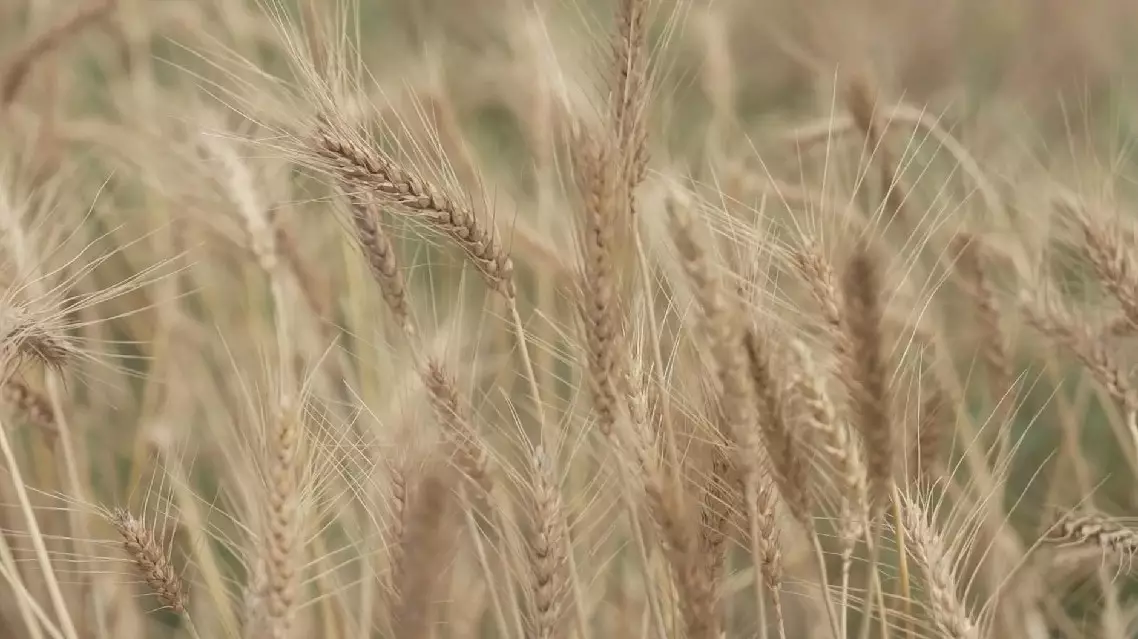
Chinese province cooperates with SCO member states in agriculture


